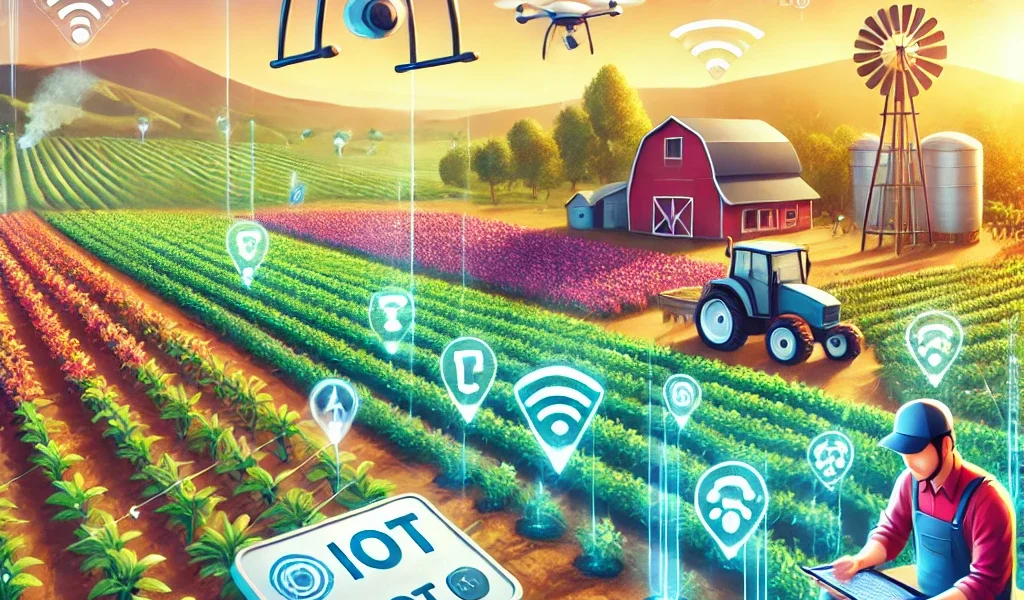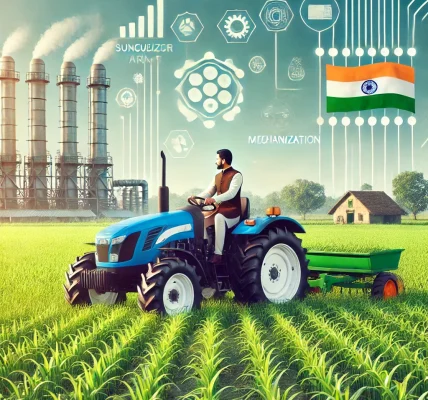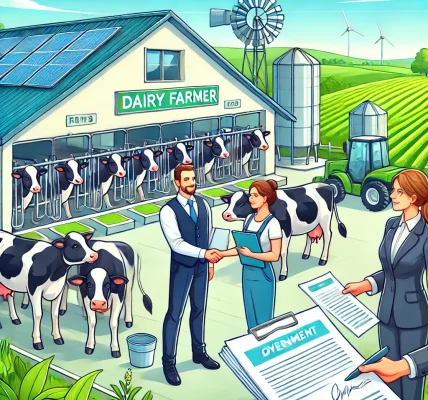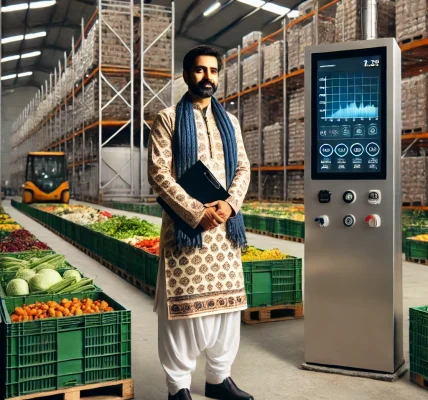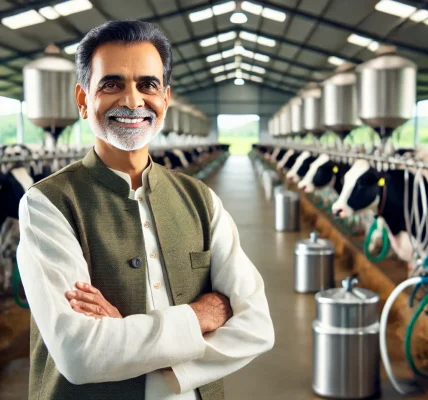Introduction
Agriculture in India is undergoing a transformation with the adoption of smart farming technologies. The government is actively promoting digitalization in agriculture through various grants, subsidies, and financial support programs to help farmers integrate modern technology into their farming practices.
This blog will explore the key smart farming and technology grants, their benefits, eligibility criteria, and how farmers can apply for them.
What is Smart Farming?
Smart farming involves using modern technology, data analytics, and automation to improve agricultural efficiency. Some key components include:
- Precision Farming: Using satellite data, sensors, and AI to optimize resource use.
- IoT in Agriculture: Smart sensors for real-time monitoring of soil, weather, and crops.
- Automated Irrigation Systems: Drip and sprinkler systems controlled via mobile apps.
- Drones for Farming: Used for spraying pesticides, monitoring crop health, and land mapping.
- Blockchain for Supply Chain Management: Ensuring transparency and traceability in agriculture.
Why Does the Government Support Smart Farming?
The Indian government promotes smart farming to:
- Increase Productivity – Reduce resource wastage and maximize crop yield.
- Enhance Sustainability – Encourage eco-friendly farming techniques.
- Reduce Labor Dependence – Use automation to address labor shortages.
- Improve Market Connectivity – Help farmers get better prices through direct digital platforms.
Major Government Grants & Schemes for Smart Farming
1. Digital Agriculture Mission (DAM) 2021-2025
- Objective: Promote digital technology adoption in farming.
- Key Benefits:
- Funding support for AI, IoT, blockchain, and drone technology in agriculture.
- Grants for agritech startups and farmer producer organizations (FPOs).
- Smart irrigation and real-time crop monitoring support.
- Eligibility:
- Individual farmers, agritech startups, and cooperatives.
- Must be registered under Kisan Suvidha Portal.
2. Sub-Mission on Agricultural Mechanization (SMAM)
- Objective: Increase farm mechanization through subsidies and incentives.
- Key Benefits:
- 40-50% subsidy on smart agricultural equipment like GPS-guided tractors, automated plows, and robotic weeders.
- Training programs on using smart farming tools.
- Eligibility:
- Small and marginal farmers, farmer groups, and cooperatives.
- Must apply through the Department of Agriculture & Farmers Welfare.
3. National E-Governance Plan in Agriculture (NeGPA)
- Objective: Promote IT-based agricultural solutions.
- Key Benefits:
- Grants for mobile applications, e-market platforms, and AI-driven advisory services.
- Financial aid for agri-data collection and precision farming solutions.
- Eligibility:
- Farmers, startups, and agri-business companies.
- Projects must align with the government’s Digital India Initiative.
4. PM-Kisan Sampada Yojana (Agro-Processing and Digital Supply Chains)
- Objective: Modernize supply chain management using digital solutions.
- Key Benefits:
- Financial support for blockchain-based tracking of agricultural produce.
- Subsidies for setting up smart cold storage and logistics networks.
- Eligibility:
- Farmer cooperatives, agribusinesses, and FPOs.
- Project proposals must be submitted to Ministry of Food Processing Industries.
5. Agriculture Infrastructure Fund (AIF)
- Objective: Provide financial assistance for agri-tech infrastructure.
- Key Benefits:
- 3% interest subvention on loans for smart farming technologies.
- Financial aid for IoT-based greenhouse setups and digital soil testing units.
- Eligibility:
- Individual farmers, FPOs, startups, and agribusiness firms.
- Loan applications must be submitted via AIF online portal.
How to Apply for Smart Farming Grants?
Step 1: Identify the Right Scheme
- Visit official government portals like PM-Kisan, NABARD, and Agri-Infra Fund.
- Choose a scheme that aligns with your farming technology needs.
Step 2: Gather Necessary Documents
- Aadhaar Card for identity verification.
- Land ownership papers (if required).
- Bank details for grant transfer.
- Project proposal (for business grants).
Step 3: Submit Application
- Online:
- Register on the respective government websites.
- Upload required documents and fill in application details.
- Offline:
- Visit the nearest Krishi Vigyan Kendra (KVK) or agricultural office.
- Submit physical documents for verification.
Step 4: Approval & Fund Disbursement
- Authorities verify applications and conduct inspections.
- Approved funds are directly transferred to the farmer’s bank account.
Challenges & Solutions in Adopting Smart Farming
1. High Initial Investment
- Solution: Farmers can use government subsidies and low-interest loans for funding.
2. Lack of Awareness
- Solution: Government should conduct digital literacy workshops in rural areas.
3. Limited Internet Connectivity in Rural Areas
- Solution: Expansion of BharatNet broadband projects for better access.
4. Adoption Hesitation Among Farmers
- Solution: Training programs and field demonstrations to showcase benefits.
Conclusion
Smart farming and technology grants are transforming Indian agriculture by enabling precision farming, automation, and data-driven decision-making. Farmers can benefit from these government schemes to increase productivity, reduce costs, and ensure sustainable farming practices.
By applying for the right grants and adopting smart technologies, farmers can improve their income and secure a better future for Indian agriculture.
